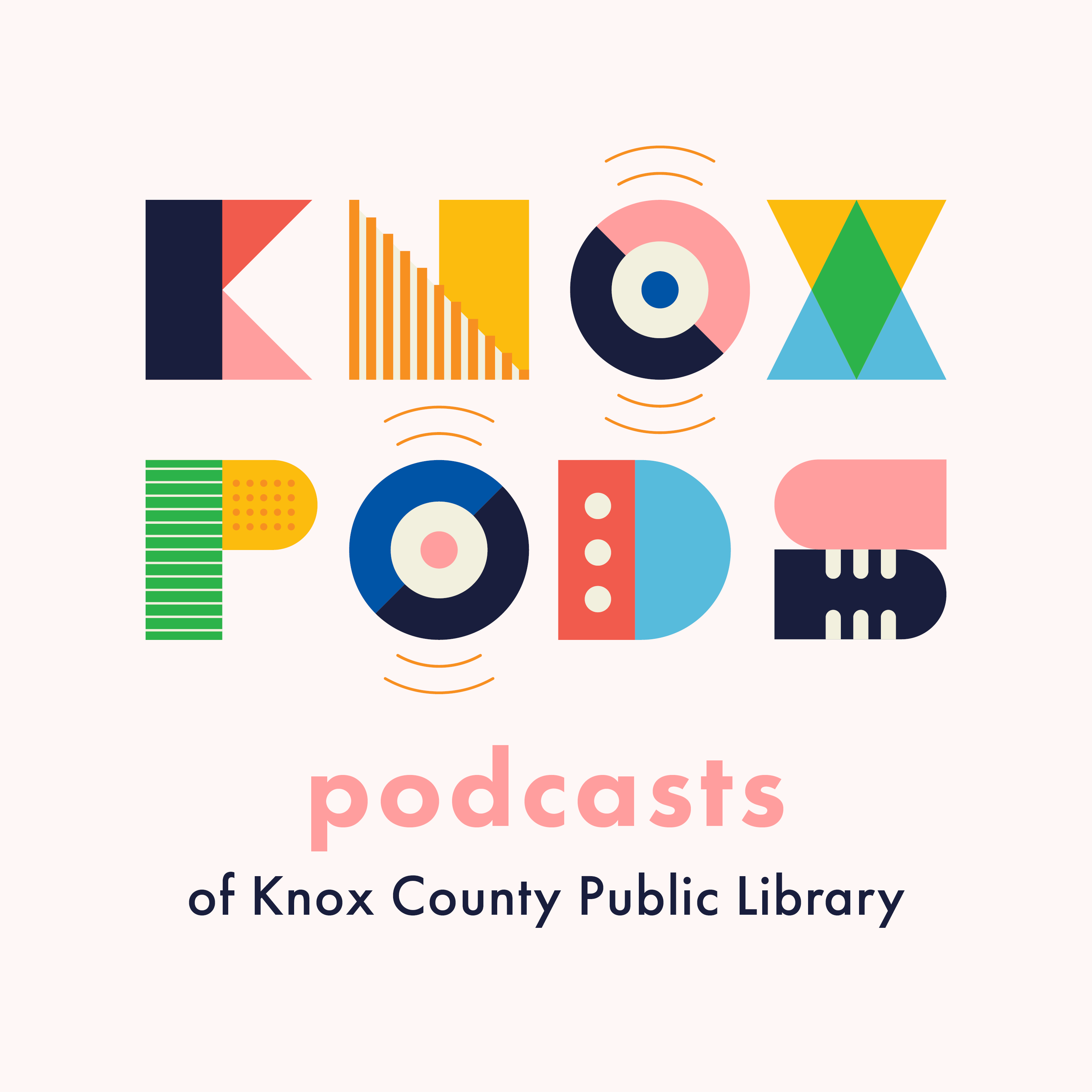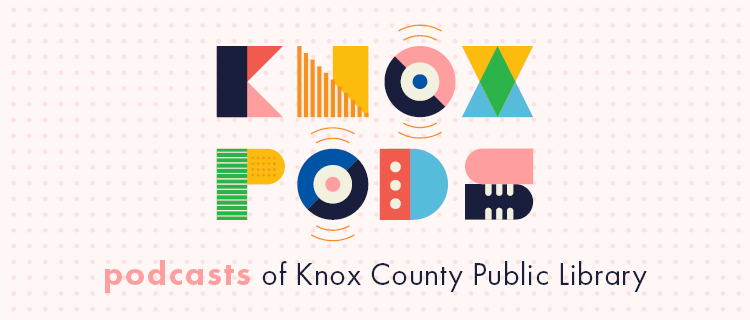full
The Beat: Harold Whit Williams
Harold Whit Williams is a poet and longtime guitarist for the indie rock band Cotton Mather. He's the recipient of the 2020 FutureCycle Poetry Book Prize, the 2014 Mississippi Review Poetry Prize, the Robert Phillips Poetry Chapbook Prize, as well as multiple Pushcart nominations. Williams is currently cataloging the KUT Radio Collection for the University of Texas Libraries, all the while writing, recording, and performing his solo music under the moniker Daily Worker.
Links:
Read “Early Recordings: Volume 1;” “Caught by the Indian Summer Train;” and “Participation Trophy”
Daily Worker at Radio Gurl Records
"Holding out for Nothing" music video by Daily Worker
"Premonitions at a Funeral" and "Nobody Knows You When You're Down and Out" at JuxtaProse
Four poems at The Dead Mule School of Southern Literature
"Blues Dreams," winner of The Mississippi Review Poetry Prize
Transcript
Welcome to The Beat, Knox County Public Library’s poetry podcast. Today, we’ll hear poet and songwriter Harold Whit Williams read his poems “Early Recordings: Volume 1;” “Caught by the Indian Summer Train;” and “Participation Trophy.” Williams will follow with his song “Failure is an Option.”
Harold Whit Williams:"Early Recordings Volume One"
The first thing you notice
Is tape hiss,
A wavy analog breath
Building into cicada buzz.
Your Christian name
Displayed in spidery cursive
On a yellowed cassette cover.
A man mumbles, blue jays shriek.
A child’s voice chimes in—
Deep South inflections,
Honeysuckle sweet
And pine sap dripping.
In this voice you hear
Church hymnal pages turn,
A merry-go-round squeak,
Summer downpours on a tin roof.
It responds to the man mumbles
With bird sounds and giggles.
You press rewind, play repeatedly,
Hearing the swish of corduroy.
"Caught by the Indian Summer Train"
I keep missing the exit for that hometown in my mind.
The borough in broken pieces
Scattered on the other side of the tracks.
They're waiting up for me, I know,
Fretting, hand wringing,
Frittering about the fried pie table.
That porch light with its congregation of moths.
That harvest moon like a Buddha
Atop yonder ridge.
The leftovers. The folded quilts.
Those sepia ghosts in their dollar store frames.
Evening deepening,
Sinking down to get comfortable.
A lone dogwood hunkering up against the house.
It leaves little flames flickering,
Its afterglow some sort of metaphor
For the fire we return to,
For the ashes sprinkled upon our slumbers.
"Participation Trophy"
For Dean Young
Such horrible advice I have received
And shall receive yet again.
Be all that you can be. Dance
Like no one’s watching. Just do it.
Midnight in the cemetery, and
I’m painfully sober being all I can be.
You are all winners!
I shout to those cold wet headstones.
No one is watching
So I foxtrot past the graveyard,
Whistling. I just did it.
I came to inside this simulation.
It was whatever I set my mind to –
Work’s drone, vacation’s hassle,
The doctor’s waiting room. Magazines.
People. Time. Life. I did
What I had to do, but mostly did not.
Nothing special about existing,
Even less about not-existing.
I don’t know exactly how to end this,
But then it’s not really up to me.
So here's a song from my latest Daily Worker album, Burn It All Down (Songs for Corey), uh, out on Radio Gurl Records. All proceeds go to The Library Collective.
[guitar plays] [Harold Whit Williams sings his song "Failure Is an Option"]
Failure is an option
I'm bent not broken
But nothing rhymes with option
I'm running out of tokens
Career suicide
But first you gotta have one
Failure is an option
Failure is an option
Give it up
Give it up
It never was yours
Give it up
Give it up
Never was yours
Nothing lasts forever
And only nothing
The ties that bind will sever
So bow to no king
Tell Mama I tried
When you find your Heaven
She'll say that failure is an option
Failure's an option
Give it up
Give it up
It never was yours
Give it up
Give it up
It never was yours
Give it up
Give it up
It never was yours
Give it up
Give it up
It never was yours
Give it up
Give it up
It never was yours
Alan May:You just heard Harold Whit Williams read his poems “Early Recordings: Volume 1;” “Caught by the Indian Summer Train;” and “Participation Trophy.” He followed with his song “Failure Is an Option.” The poems are from his latest book Harold Whit Williams: Selected Poems, published by FutureCycle Press. And the song is from his latest album, Burn It All Down (Songs for Corey), available through Radio Gurl Records. Williams was kind enough to record for us at his home in Austin, Texas. Harold Whit Williams is a poet and longtime guitarist for the indie rock band Cotton Mather. He's the recipient of the twenty twenty FutureCycle Poetry Book Prize, the twenty fourteen Mississippi Review Poetry Prize, the Robert Phillips Poetry Chapbook Prize, as well as multiple Pushcart nominations. Williams is currently cataloging the KUT Radio Collection for the University of Texas Libraries, all the while writing, recording, and performing his solo music under the moniker Daily Worker. You can find books by Harold Whit Williams in our online catalog. Also, look for links in the show notes. Please join us next time for The Beat.






